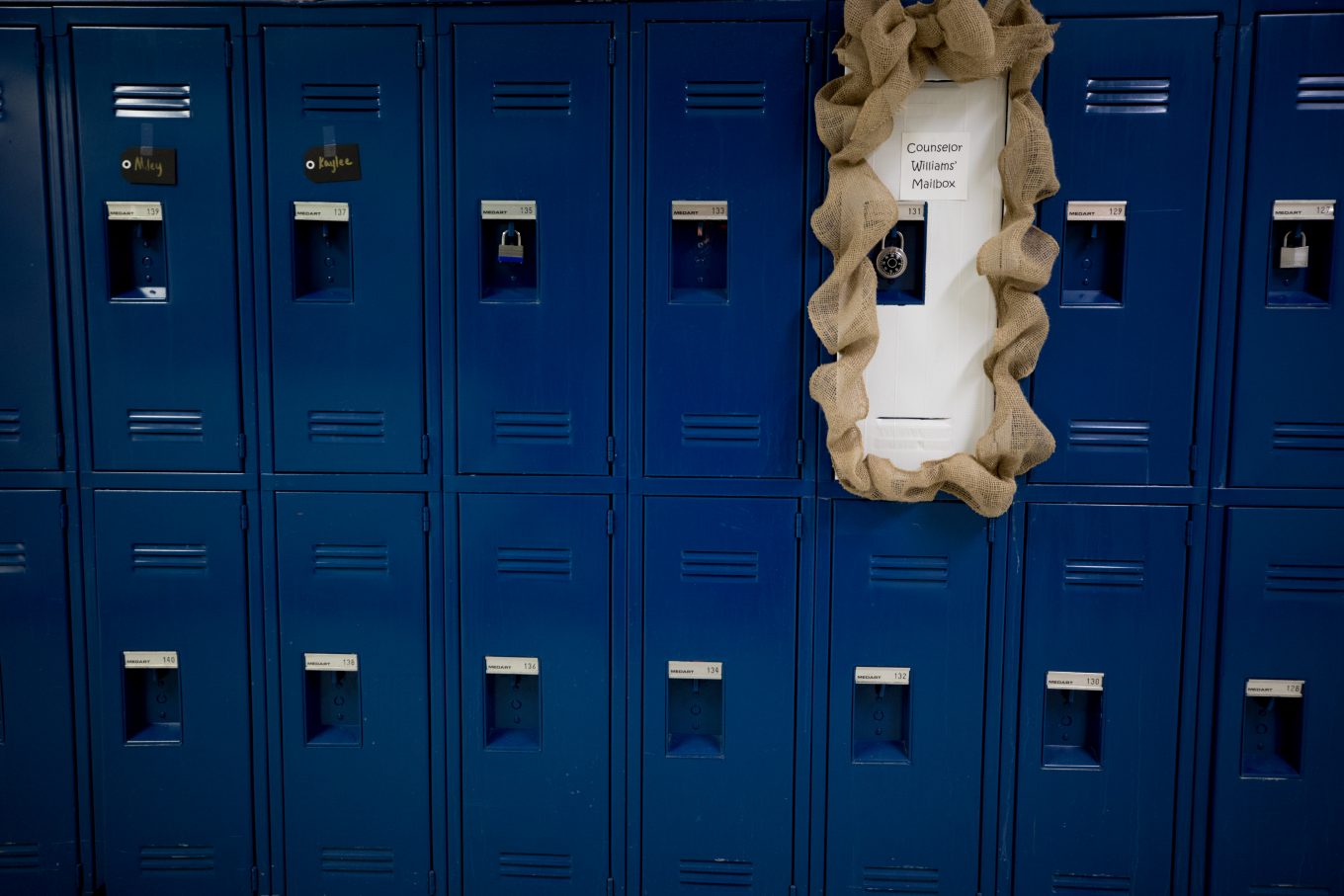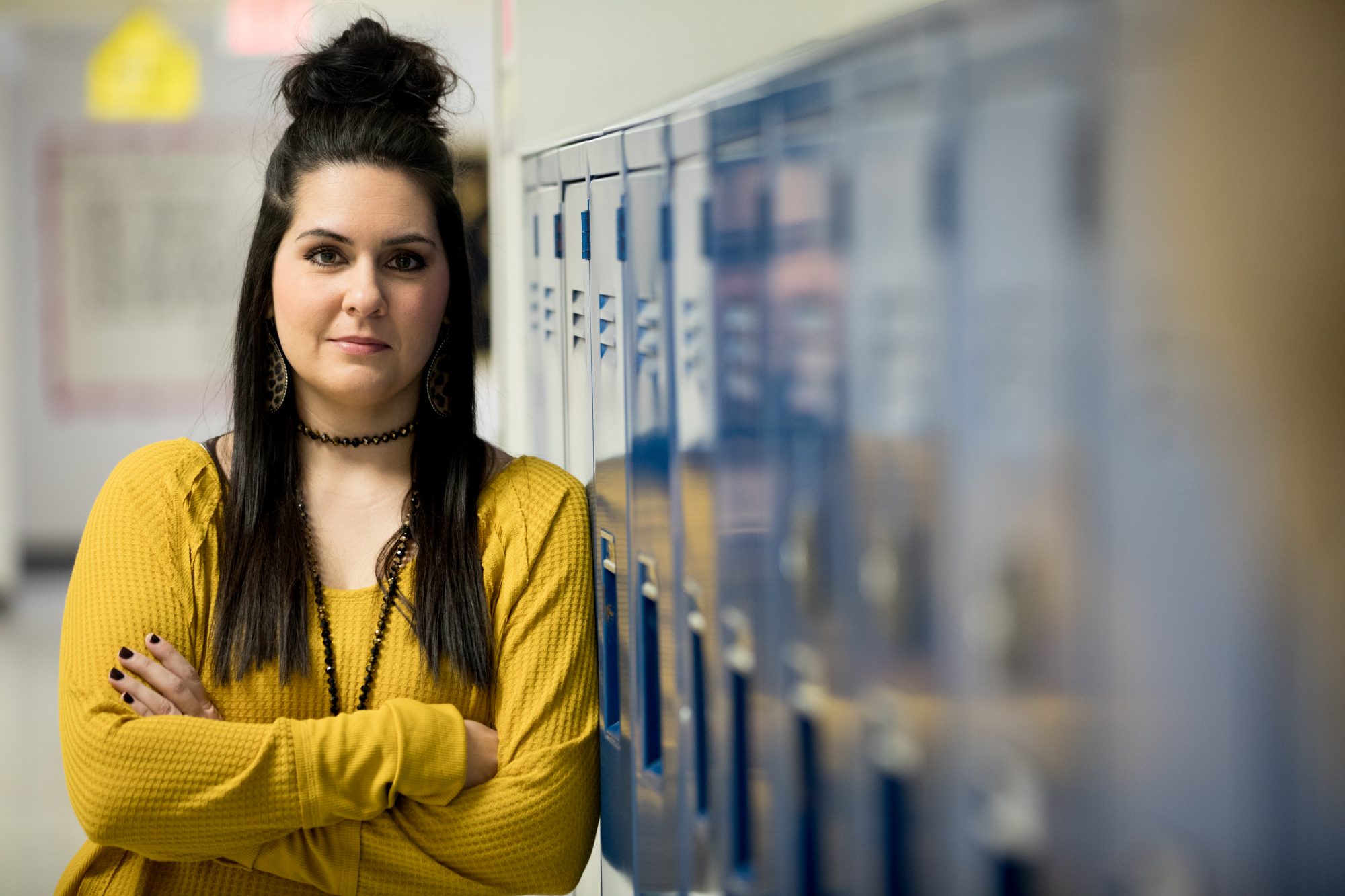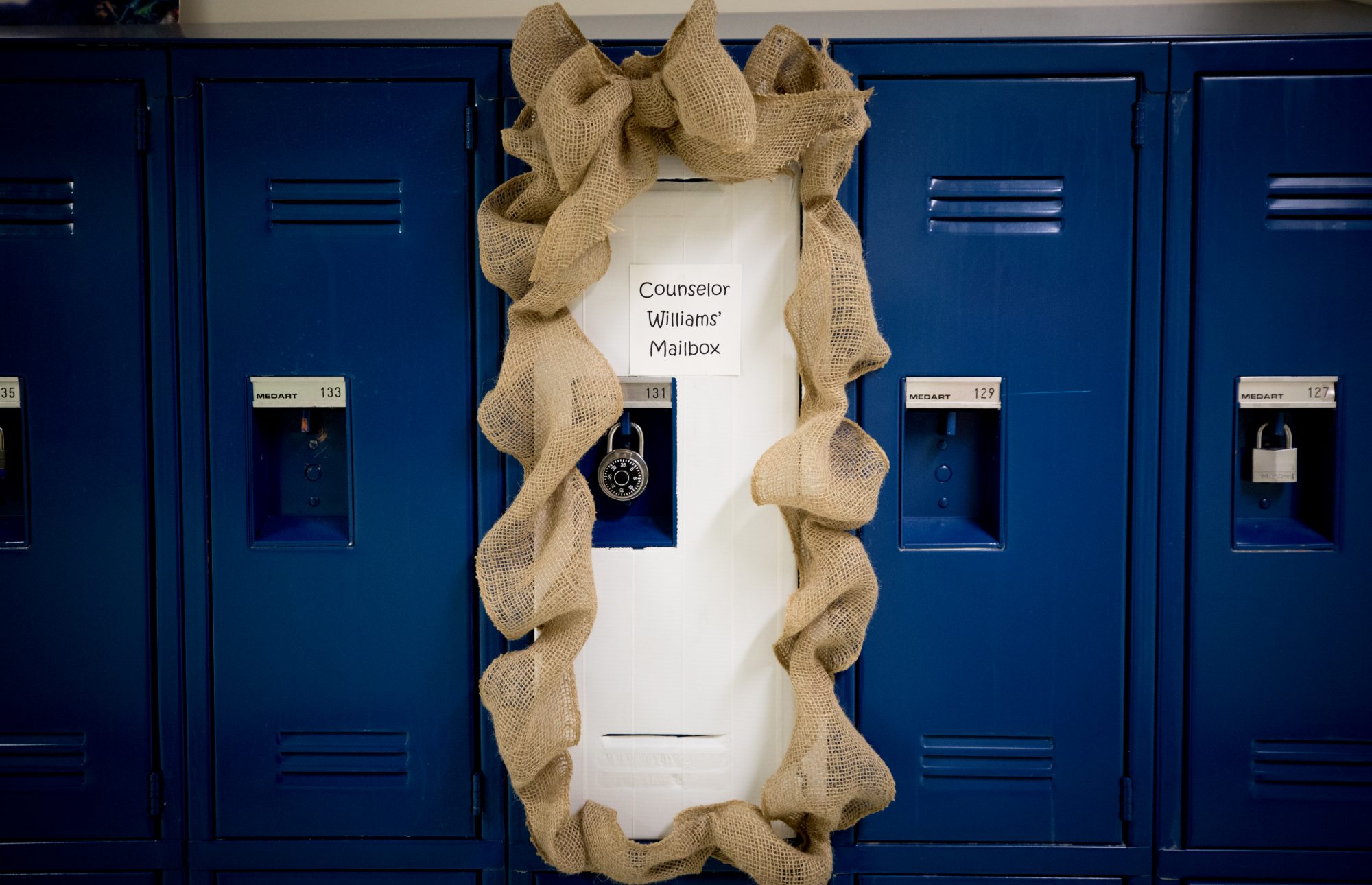 At Central Elementary School in Seagoville, students can use a locker to leave private notes for counselor Ashley Williams / Photo: Allison V. Smith
At Central Elementary School in Seagoville, students can use a locker to leave private notes for counselor Ashley Williams / Photo: Allison V. Smith
Letters To Ms. Williams: A Counselor Helps Students Share Their Feelings
Teachers and school counselors are often the first to notice when a student is struggling. Again and again, educators find themselves going beyond their assigned duties to care for children’s mental and emotional needs.
As part of our series, On Our Minds: The Caregivers, counselor Ashley Williams from Central Elementary School in Seagoville shares in her own words how she set up a unique way for students to share their feelings.

Central Elementary School counselor Ashley Williams set up a special locker where students can send her notes about things they’re experiencing. / Photo: Allison V. Smith
I’ve been a teacher for 13 years, and this is my first year as a counselor and my first year here at Central Elementary School.
I was in Hobby Lobby one day — my favorite place — and I saw this mailbox and I thought, oh that’s really cool. I want to stick that outside my door so students can drop off notes. Then I started looking at it and I was like, well it doesn’t have a lock on it, so anybody could just get in and read that — and I don’t want anybody to do that.
Me and my principal got together. We started thinking about things, and we said, “Why don’t we use a locker instead, and we’ll put a lock on it, and the kids can slide their notes in the little slits?” That way, even as they’re passing by, nobody even has to know that they’ve just slid that note right in.
Being a brand new counselor and being brand new here, the kids don’t know me, so I know that they’re not going to feel comfortable just walking up to me saying, “Ms. Williams, can I talk to you?” So I wanted to come up with something that they would be able to either ask their teacher or they can even grab a note … the teachers have notes that are located by the doors. So the kids know that they can just go get one, write down their information and then drop it off, so they don’t even have to ask a teacher for it.

Williams created cards for the locker that ask students for their grade, name, teacher and if their issue is a big or small problem. / Photo: Allison V. Smith
I’ve had about 20 letters dropped off so far. I’ve had students that have talked about their home life and how it’s been very difficult for them, and I’ve had students that just want to tell me how their day’s been and that some good news has happened.
This really has meant a lot to me. Coming into this brand new, I’m thinking, these kids don’t know who I am. They’re going to be very timid. I’m not going to get the response I wanted. But I knew that it’s all about building relationships with your students. When I see them every morning and I’m hugging them, and they know that I care about them, that’s when I’m getting that response and that’s when they’re coming to me saying, “Hey, I need to talk.”
NEXT>> When a child is diagnosed with a mental illness, parents can play a crucial role in their treatment, but what happens when those children become adults? Debbie Spruell is caring for her adult son with schizophrenia — and the legal hurdles are tripping her up. Read and listen to Debbie’s story.

